GIC 2019 in Review
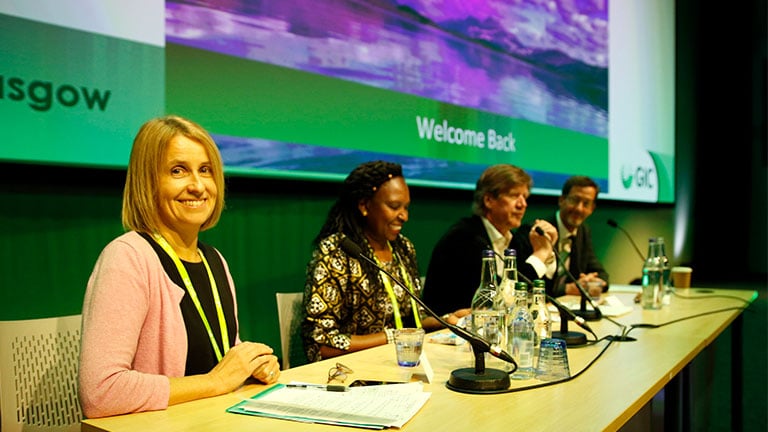
GIC 2019 in Review
Masterclasses are led and facilitated by implementation experts from across the world.
You will have the opportunity to consider key implementation concepts, tools and skills relevant to implementation practice, policy implementation or implementation research.
Each masterclass is three hours long. Group numbers are small, and it will involve practical and interactive learning.
The masterclasses have an additional registration fee which includes one morning session, lunch and one afternoon session. These sessions must be chosen in advance.
Choose from three levels of masterclasses
Introductory level is:
For those with an increasing awareness of the evidence relating to implementation science and practice. You will be relatively new to the field; conducting research, negotiating policy challenges or facilitating effective implementation practice.
Intermediate level is:
For those with growing knowledge and experience relating to implementation science and practice. You will be relatively active in the field, whether conducting research, negotiating policy challenges or facilitating effective implementation practice. Intermediate content will help the you consolidate understanding and knowledge.
Advanced level is:
For those with in depth knowledge and experience relating to implementation science and practice. You will be actively involved in conducting research, negotiating policy challenges or facilitating effective implementation. Advanced content may be provocative and challenge existing implementation paradigms.
Introductory masterclasses
Exploring and understanding key insights from the science and practice of implementation (Morning)
We know too much to keep doing what we have been doing! This masterclass has been designed for individuals who consider themselves ‘newcomers’ to the implementation field and who are excited to make even better use of what is known about effective implementation. This session will provide an overview of key implementation findings, key frameworks for practice and research, and case examples from high and low-income settings to demonstrate the value of applying the science and practice of implementation to complex improvement efforts. This masterclass will engage participants in reviewing various factors necessary for successful implementation and considering the relevance to participants’ current improvement or implementation-related efforts. The content of this masterclass is relevant for program implementers, evaluators, technical assistance providers, grants managers, civil servants, strategic leaders, intervention developers and purveyors, and implementation researchers.
Melissa Van Dyke, International Expert Advisor on Implementation, CELCIS – the Centre for Excellence for Children’s Care and Protection
Rawan Ibrahim, Assistant Professor, Department of Social Work, German Jordanian University, Jordan
Applying the insights from implementation science to the work you do (Afternoon)
Are you curious about the ‘practice of implementation’, as informed by the science of implementation? This masterclass will focus on the application of the Active Implementation Frameworks (AIF) to improve practice and policy change efforts, using actual examples of service system and practice improvement initiatives. The masterclass will provide participants with the opportunity to become familiar with and ‘test out’ available tools and resources to guide and support effective implementation of complex service system and practice improvements. The content of this masterclass is relevant for program implementers, evaluators, technical assistance providers, grants managers, civil servants, strategic leaders, intervention developers and purveyors, and implementation researchers.
Melissa Van Dyke, International Expert Advisor on Implementation, CELCIS – the Centre for Excellence for Children’s Care and Protection
Rawan Ibrahim, Assistant Professor, Department of Social Work, German Jordanian University, Jordan
Intermediate masterclasses
Building organizational and system capacity to scale-up through the development of implementation teams (Morning)
Creating meaningful change in systems is complex and challenging work. Over the past several decades, considerable research, policy, and funding have focused on the use of evidence-informed, effective practices. However, the intended benefit of these practices can only be realised when fully and effectively implemented by practitioners. There is growing evidence that ‘implementation teams’, at each level of the system, are the most effective mechanism to support consistently high quality practice throughout a system. Drawing on extensive learning from educational systems, masterclass participants will have an opportunity to learn how to develop high functioning implementation teams in times of limited resources, how to develop the necessary competencies in implementation teams, and to consider the key messages for decision-makers in your system to consider investing in implementation teams to deliver the desired results.
Kathleen Ryan-Jackson, Implementation Specialist, National Implementation Research Network (NIRN), Frank Porter Graham Child Development Institute, University of North Carolina at Chapel Hill
Terje Ogden Research Director, The Norwegian Center for Child Behavioral Development
Implementation-informed evaluation: Improving theory, Implementation, and support in evolving complex initiatives (Morning)
Formative evaluations are beneficial for multiple stakeholders in the design and implementation of interaction-based and complex initiatives. For funders, investing in formative evaluations can reassure their boards that a reflective, learning-oriented process is incorporated into new complex improvement initiatives. For community stakeholders and implementation providers, formative evaluations help develop an initiative’s theory of change and improve implementation outcomes. For evaluators, using a formative evaluation approach, with community and implementation stakeholders, increases engagement and appreciation of evaluation processes and tools. It also enhances the validity of the data. Since successful implementation of complex innovations requires joint accountability and an ability to sense and respond to emergent, unanticipated issues, this masterclass will offer an opportunity to ‘go deeper’ into the potential of formative evaluation approaches to support full and effective implementation of complex, evidence-informed innovations. Many initiatives are versions of “building the boat while you are sailing”–formative evaluations that involve key stakeholders help to build the boat while sailing, support learning and change to increase the likelihood of a fruitful journey and purposefully produce socially significant outcomes
Abe Wandersman, Emeritus Professor in the Department of Psychology at the University of South Carolina, USA. & Mary Salveron, Consultant, Emerging Minds, National Workforce Centre for Child Mental Health, Australia
Leadership and Implementation – Exploring leadership and the role of leaders in integrating the science and practice of implementation into organisations’ systems. (Morning)
What does the science and practice of implementation offer the leadership system in organisations whose purpose is to contribute to socially significant improvements in the lives of a particular population? How can individuals and organisations build leadership capacity, integrate the findings from implementation research into their ways of work, and build implementation capacity to ensure that services and supports respond meaningfully to population needs? This masterclass will draw on best available implementation research and real world implementation experience to engage participants in exploring implementation informed ‘theory of change’, implementation informed leadership and change models, and how these can guide organisational practice and contribute to the effective delivery of organisational mission.
Eleanor McClorey, Independent Consultant, Ireland
Claire Burns, Director of Programmes and Services, CELCIS – the Centre for Excellence for Children’s Care and Protection, Scotland.
Coaching to enable implementation and sustainment (Morning)
Since most skills needed by successful practitioners can be introduced in training, but really are learned on the job with the help of a coach, the importance of developing coaching capacity within all practice or service settings is become more widely understood. Coaches not only expand the knowledge and skills taught in training, they also impart craft knowledge (e.g. engagement, ethics, managing work flow, clinical judgement). This masterclass will engage participants in assessing program or project readiness for developing a coaching system. It also will engage participants in a deeper analysis about the core skills of coaches to develop practitioner confidence and competency, with a focus on the role of direct observation and use of observational data and feedback.
Karen Blase, Senior Scientist Emerita at the Frank Porter Graham Child Development Institute at the University of North Carolina, Chapel Hill, USA
Kristen Berg Nordahl, Researcher, Norwegian Center for Child Behavioral Development, Norway
Scaling up complex improvement in low-income settings (Afternoon)
This masterclass provides case examples of the use of a systematic approach to implementation and scale up of complex, community-based approaches in low-income settings and to ensure their sustainable expansion to regional and national levels. Participants will have the opportunity to assess the fundamental value of systematically designing and implementing complex improvements with focused attention to scale up. This masterclass will engage participants in identifying the challenges to scale up at the regional and national levels, and offer guidance related to operationalising commitment across bureaucratic agencies when a history of collaborative working doesn’t exist.
Dorah Taranta, Project Manager, Pathfinder International, Kampala, Uganda
Laura Ghiron, Vice President at Partners in Expanding Health Quality and Access and Member of the ExpandNet Secretariat, California, USA
“Improve-mentation” combining implementation and quality improvement to strengthen our science and implementation practice. (Afternoon)
The purpose is to enable improvers and implementers to use recent knowledge from these sciences to carry out improvement changes and research more effectively. Participants gain an understanding of the differences and overlap between implementation and improvement and of how and when to combine elements of each to develop our science and practice. We provide tools and guides to apply the recent advances in these fields in research and practice. This masterclass is led by experienced quality and implementation researchers and practitioners.
John Øvretveit, Professor of Improvement Implementation and Evaluation, Director of Research, LIME/MMC, Karolinska Institutet Medical Univerisity, Sweden
Luke Cavanagh, Head of Corporate Analytical Services in the Scottish Government
Exploring and understanding the role of co-creation in designing and implementing effective innovations. (Afternoon)
Having a meaningful impact is a collective endeavour that requires bridging the gap between evidence and the real-world experience of making full use of best available evidence-informed solutions to bring about lasting, positive change. This masterclass will present opportunities to consider strategies to engage diverse partners, such as governments, funders, academics, private sector partners, practitioners, and the beneficiaries of the innovation, to create usable solutions that achieve lasting, positive change and build local capabilities over the long term.
Luize Guimares, Senior Consultant, Oxford Policy Management; MUVA Programme Manager, Mozambique.
Lesley Cook, Family Group Decision Making Development Lead: Children 1st Scotland
Advanced masterclasses
Getting the Results We Want—How to choose the right data supports within a complexity-informed approach (Morning)
This masterclass will offer real-world examples of how to explore social problems by asking questions and assessing what we know and don’t know. When the evidence is unclear and solutions have yet to be identified, delegates will explore a complexity-based narrative approach—SenseMaker—to allow narrative data to tell a story, interpret patterns, and work with other delegates to generate solutions. In situations where evidence is well-established and fidelity protocols are clear, delegates will explore cutting edge, dynamic software—IMPACT—available to support uptake and sustained high quality implementation of effective approaches to address social, emotional, and health challenges. Delegates will have a hands-on experience to explore the stories from a community lens with SenseMaker and from a front-line practitioner with IMPACT. All will leave with a better understanding of what approach is best-suited to various problems and populations to achieve the improved outcomes we all seek.
Jacqueline Counts, M.S.W., Ph.D.
Melissa DeRosier, PhD, is the CEO and founder of 3C Institute.
Implementation science – determinants of implementation. (Afternoon)
Implementation science has progressed towards increased use of theoretical approaches to provide better understanding and explanation of how and why implementation succeeds or fails. This masterclass will present a taxonomy that distinguishes between different categories of theories, models and frameworks in implementation science, and a tool to facilitate appropriate selection and application of relevant approaches in implementation research and practice and to foster cross-disciplinary dialogue among implementation researchers. Masterclass participants will have an opportunity to apply this tool to various implementation research and evaluation efforts, to increase their understanding of the benefits of careful selection of theories, models, and frameworks, and to maximise the value of the learning from each effort.
Per Nilsen, Professor in Department of Medical and Health Science at Linkoping University, Sweden
Margit Neher, Department of Medical and Health Sciences, Linköping University
Defining, operationalizing, and measuring implementation at multiple levels: Lessons learned from wraparound and systems of care. (Afternoon)
This masterclass provides a case example to describe the process of developing measures to support practice fidelity and implementation success of a complex, team-based innovation that also requires substantial system- and program-level support to succeed. The Wraparound process has a positive evidence base; however, research has shown that inconsistency in the quality of its implementation can reduce its effectiveness. Moreover, system (e.g., policy and funding) and organizational (e.g., supervision, monitoring, leadership) effort has been found to be necessary to achieve practice level quality and fidelity. Therefore, this masterclass will provide detailed examples of the process of developing and adapting psychometrically sound, reliable and valid measures to support full and effective implementation of human service innovations that entail practice, organizational, and system level change.
Eric Bruns, Professor in Department of Psychiatry and Behavioural Sciences at the University of Washington; Co-Director, National Wraparound Initiative; Co-Director, Washington State Children’s Mental Health Evidence Based Practice Institute, USA
Marlene Matarese, Deputy Director, The Institute for Innovation and Implementation, University of Maryland School of Social Work; Deputy Director, National Technical Assistance Network for Children’s Behavioral Health; Co-Director, National Wraparound Implementation Center, USA.
Masterclass Faculty

Kristen Berg Nordahl, Researcher, Norwegian Center for Child Behavioral Development, Norway
Kristin Berg Nordahl, PhD, is a researcher at the Norwegian Center for Child Behavioral Development, Oslo, Norway, and an Associate Professor at the Department of Health Promotion and Development, University of Bergen, Norway. Kristin started her career as a social worker in the Norwegian child protective services, working with neglected and abused children in residential homes, and as a caseworker in the child welfare system. She later trained as a Parent Management Training, the Oregon model, (PMTO) therapist, working with families and children with externalizing behavior problems. Kristin followed the implementation of PMTO in Norway closely, first as a therapist, and later part of the research team in in two large studies; the NIDA funded study of Implementation of PMTO in Norway and the Norwegian funded randomized effectiveness trial of PMTO in Norway. One of Kristin’s particular research interests are observational data, and how data from direct systematic observation can be of use, not only when investigating therapist adherence to the intervention or change in family interaction dynamics, but also serve as a useful tool for coaches and practitioners.
Kristin received her PhD in developmental psychology (2014) on fathers’ interaction with one-year-olds, focusing on observational data. Among several other projects, she is currently engaged in the evaluation of MATCH-ADTC (Modular Approach to Therapy for Children with Anxiety, Depression, Trauma and Conduct Problems) in child mental health clinics in Norway, in which both observational data and clinical feedback systems are being utilized.

Karen Blase, Ph.D., is Director of the Active Implementation Research Network (AIRN), Chapel Hill, USA; and Founder of the National Implementation Research Network (NIRN), USA
Karen has been a program developer, researcher, program evaluator, implementation specialist and published author in human services for over 45 years. She has served as the President of the Foster Family-Based Treatment Association, President of the International Teaching-Family Association, and President of the Pyramid Model Consortium. Karen has had extensive involvement in implementation science and best practices, knowledge utilization, dissemination, program replication, and scale-up.
Karen received her doctorate in Developmental and Child Psychology from the University of Kansas with a focus on school-based interventions and services for high needs children and youth. She also has utilized implementation science and best practices in the fields of child welfare, domestic violence services and prevention, and early childhood by utilizing the Active Implementation Frameworks (AIF). As part of a research team, Karen was involved in completing a major review and synthesis of the implementation literature in 2005 and is a co-author of the 2019 book, Implementation Practice and Science. These extensive reviews and the Active Implementation Frameworks provide guidance for the effective adoption, utilization, and scale-up of evidence-based programs and practices and evidence-informed innovations. Her current interests include the application of implementation science and scaling to civic engagement and social justice initiatives.

Eric Bruns, Professor in Department of Psychiatry and Behavioural Sciences at the University of Washington
Dr Bruns also serves as: Director, University of Washington Wraparound Evaluation and Research Team; Co-Director, National Wraparound Initiative; Associate Director, UW School Mental Health Assessment, Research, and Training (SMART) Center. His research focuses on public child-serving systems, and how to maximize their positive effects on youth with behavioral health needs and their families. Toward this end, his work focuses primarily on two areas with high public health significance. The first is intensive care coordination models for youths with serious emotional and behavioral challenges. In this area, Dr. Bruns co-directs the National Wraparound Initiative, the National Wraparound Implementation Center (www.nwic.org), and the UW Wraparound Evaluation and Research Team, and has led multiple federally-funded research and intervention development projects aimed at defining and evaluating impact of intensive care coordination models. The second area is school mental health services. In this area, Dr. Bruns is Associate Director of the UW SMART Center, where he leads the Center’s Technical Assistance Core and directs several federally-funded studies of school-based mental health interventions.

Claire Burns – Director of Programmes and Services, CELCIS – the Centre for Excellence for Children’s Care and Protection, University of Strathclyde, Scotland.
Claire Burns is Director for Programmes and Services at CELCIS. Claire has a professional background in social work and has experience of practice, management and teaching within child and family services. Claire is responsible for leading the development and sustainability of CELCIS, which is an organisation that offers information, research and consultancy to help strengthen policy development and service delivery relating to child and family services. Claire has been instrumental in expanding CELCIS’ capacity to adopt implementation informed models of consultancy, using the Active Implementation Frameworks. She has been an avid attendee of the Global Implementation Conference and is excited to be part of the team co-hosting GIC 2019 in Glasgow.
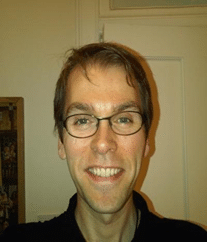
Luke Cavanagh, Head of Corporate Analytical Services in the Scottish Government.
Luke brings a wealth of experience from roles working in the Parliament, Government and Healthcare Improvement Scotland, and in recent years has focused on creating Quality Improvement capacity and capability across public services in a range of social policy settings. As an Improvement Adviser (Institute for Healthcare Improvement course), Luke has assisted in the development of the Permanence and Care Excellence programme run by CELCIS, University of Strathclyde, and supported the Scottish Government’s improvement approach in primary and secondary education settings.
Luke has recently focussed on creating and delivering improvement capacity and support in Scotland with a range of health, education and social care partners. He is a strong advocate for cross-sector learning and a systems-based philosophy of improvement and teaches on NHS Education’s Scottish Improvement Leaders course (ScIL). Luke is not wedded to a particular method-led view of improvement and is interested in the interactions between context, technical and relational views and approaches to improvement and the factors that increase the likelihood of improvement, particularly in complex social systems.

Lesley Cook – Family Group Decision Making Development Lead: Children 1st Scotland
Lesley Cook is the Family Group Decision Making (FGDM) Lead for Children 1st in Scotland. Her current role involves increasing the availability and quality of FGDM Services to families across Scotland in order to realise Children 1st’s vision for Scotland that no life changing decision is made about a child without the family first having the offer of a Family Group Decision Making Meeting. Lesley supports this development of FGDM within Children 1st and local authorities. She also leads the accredited training for FGDM in Scotland for Children 1st, in partnership with Robert Gordon University.
Lesley has a track record of developing and sustaining innovative and successful children, young people and families’ projects in both the voluntary and statutory sectors. This has included a substance misuse service for young people, a street-work project for young people in relation to sexual, physical and mental health, a number of FGDM services and an advocacy support service for parents and children involved in multi-agency ‘Team Around the Child’ professional meetings around child welfare.
Lesley has a degree in psychology and her postgraduate study has included; child protection, substance misuse, counselling, mediation, family group decision making and management. Lesley’s approach to her work is relational, restorative, trauma-informed and solution-focussed. She believes that children and families are experts on themselves and that families are the best places for children to grow up whenever this is safe and possible. Out-with work, she is a mother to two children, she runs, sings in an acapella choir and relaxes by practising yoga and mindful meditation
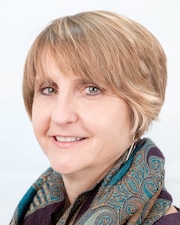
Jacqueline Counts – Director of the Center for Public Partnerships and Public Service at the University of Kansas Achievement & Assessment Institute.
Director of the Center for Public Partnerships and Public Service. She received her training at the University of California-Berkeley and the University of Kansas. Before returning to the University of Kansas, she was the Region VII Project Officer for the Early Childhood Health and Development Branch of the Maternal Child Health Bureau of Health Resources and Services Administration. Dr. Counts has been the principal investigator on numerous early childhood, systems-building, accountability and evaluation projects, including the Early Childhood Comprehensive Systems evaluation, Project LAUNCH, Community-based Child Abuse and Neglect, several National Governors Association early childhood grants, and others.
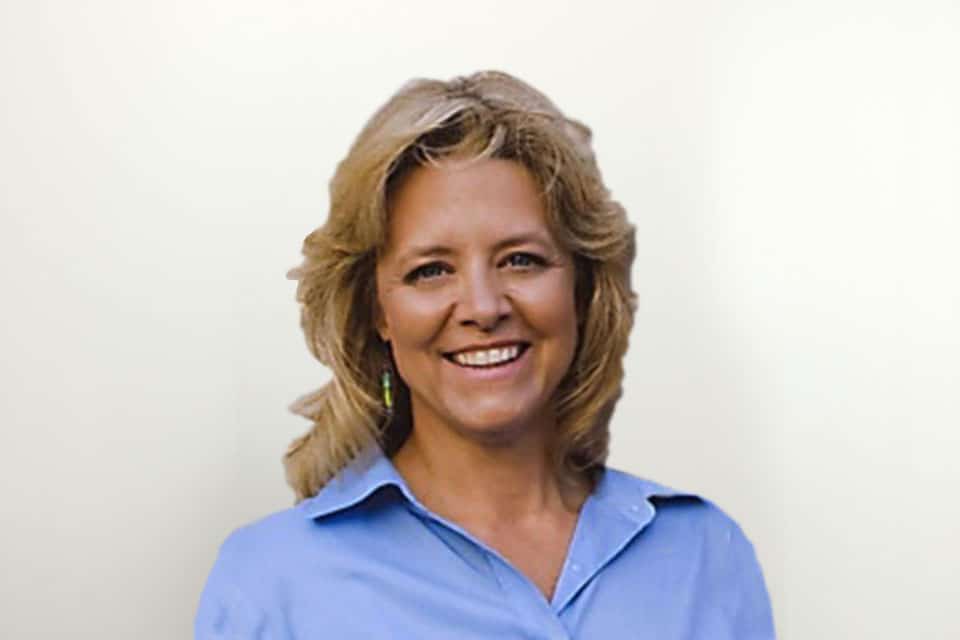
Melissa DeRosier – Founder and CEO of the 3C Institute
Dr. DeRosier is a licensed clinical psychologist with a master’s degree in Developmental Psychology from the University of Virginia and a doctorate in Clinical Psychology from the University of NC at Chapel Hill. Over the past 25 years, she has served as Principal Investigator on more than 45 federally funded research projects investigating the causes and consequences of significant societal issues, such as school violence and youth mental health. Dr. DeRosier (and 3C Institute) partners with researchers and interventionists across the globe to design, test, and disseminate innovative digital solutions for effective assessment, intervention, and implementation support across a broad array of health and behavioral health fields.

Laura Ghiron – Vice President at Partners in Expanding Health Quality and Access and Member of the ExpandNet Secretariat, California, USA
Laura Ghiron, MPH, is Vice President of Partners in Expanding Health Quality and Access, a US-based non-profit organization, and a member of the ExpandNet Secretariat. She spent 1998-2009 at the University of Michigan School of Public Health, and the last five as Senior Research Area Specialist. From 1998-2006, Ms. Ghiron collaborated with the World Health Organization and colleagues in Latin America on the implementation of the Strategic Approach to Strengthening Reproductive Health Policies and Programmes and the subsequent Reprolatina Project. She worked with Chinese colleagues on the Quality of Care Project from 1997-2007. In 2003 Ms. Ghiron helped found ExpandNet, which is a global network of public health and development professionals seeking to advance the science and practice of scaling up (see www.expandnet.net). Since 2005 she has served as Vice President of Partners, during which time she has co-organized and co-facilitated several meetings on scaling up, edited a book of scaling-up case studies, and co-authored several guides and peer-reviewed articles on scale-up, all of which are freely available on the ExpandNet website. Ms. Ghiron has been providing scaling up-related technical support since 2007 to several major public health and development initiatives in Asia, Africa, and Latin America with support from the Bill and Melinda Gates Foundation, the MacArthur Foundation, USAID and several others.

Luize Guimaraes, Senior Consultant, Oxford Policy Management; MUVA Programme Manager, Mozambique.
Luize is a development worker with experience in the health sector, social protection, corporate social responsibility, female economic empowerment and programme implementation. Previously, she has worked for a Development Bank, l’Agence française de Development (AFD) and for the private sector. For AFD, she was based in Cambodia as the health and social protection programme officer. During this time Luize was part of the group of donors who founded the Health sector Swap. This experience provided her with a deep understanding of the harmonization and alignment policy and financial dynamics. Based on this, while doing her specialization in Health policy and management at Harvard School of Public Health, she wrote a class to teach the issue of aid fragmentation, H&A and pool fund agenda in the health sector. The case was successfully implemented across Harvard University and became since then a regular yearly class organized with the support of Aid for Health. Before being a consultant and working for a donor, she worked for different NGOs in Mexico, France, Brazil and Cambodia where she supported the setup of a silk fairtrade cooperative

Rawan Ibrahim – Assistant Professor, Department of Social Work, German Jordanian University
Rawan W. Ibrahim is an Assistant Professor at the Department of Social Work in the German Jordanian University. Her specialization lies in the field of child protection and alternative care. Upon completing her PhD at the School of Social Work, University of East Anglia (Norwich, UK), she returned to Jordan and was appointed as Project Director and Co-Investigator of the Community-Family Integration Teams (C-FIT). C-FIT program was a multi-year UNICEF funded partnership that introduced foster care to the Jordanian child welfare system and aimed to deinstitutionalize children living in residential care homes. The project represents one of the first formal implementations of community-based alternatives to institutional care in the region. Rawan continues to consult for the UNICEF Jordan Country Office, as well as other local and international organizations such as in Northern Iraq, Indonesia and Morocco. She has been a member of the International Research Network on Transitions to Adulthood from Care (INTRAC) since 2006, and was recently re-elected to continue to be part of INTRAC’s executive committee, and serves on the International Advisory Board of the Institute for Inspiring Children’s Futures, University of Strathclyde.

Marlene Matarese, Deputy Director, The Institute for Innovation and Implementation, University of Maryland School of Social Work; Deputy Director, National Technical Assistance Network for Children’s Behavioral Health; Co-Director, National Wraparound Implementation Center, USA.
Marlene Matarese, PhD has 15 years of experience working in child- and family-serving systems, at individual, county, state, and national levels. For the past 10 years,Marlene has been providing training and technical assistance on Wraparound, SOC, workforce development, implementation science, LGBTQI-2S topics, youth involvement and positive youth development. The focus of her work has been improving access to and the quality of home- and community-based care for children with serious behavioral health needs. Since 2006, Marlene has been with the University of Maryland, where her role evolved from a statewide trainer in Wraparound to directing The Institute’s training and technical assistance (TA) center. Similarly, TA center has grown over the past six year to providing intensive, training, coaching and TA to states across the country. Dr. Matarese manages trainers with expertise in various content areas as well as an events team. She has led the development of both small and large conferences as well as the design and implementation of an extensive IT platform that include distance learning technologies. Dr. Matarese serves as the principal investigator on multiple national contracts to provide large-scale Wraparound implementation through intensive training and coaching. Dr. Matarese has led the design of nationally recognized Wraparound practitioner certification curricula. Her prior professional experiences include providing technical assistance nationally on youth involvement and in partnership with a group of young people, organized and developed Youth MOVE National. She continues to champion the meaningful inclusion of youth in all levels of system design. Dr. Matarese also brings years of experience working directly with youth and their families as a care coordinator, clinician, personal counselor and aide for youth with behavioral health needs.

Eleanor McClorey – Independent Consultant, Ireland
Eleanor McClorey is an Independent Consultant and Coach. Her consultancy practice model is rooted in the fields of Implementation Science, Structural Dynamics, and Process Work. Eleanor is experienced in change management, innovation and leadership and her specialist practice field is the delivery of improved outcomes through organisational, systems, and service change strategies. She has practice and management experience in community development, child and family services, and services to address youth homelessness and education exclusion. She was the founding Chief Executive of youngballymun, a pioneering prevention and early intervention initiative in children’s services that embedded evidence based, outcomes focussed innovations in services to children and families across primary health care, early care and education, primary schools and family and community support services. Eleanor provides implementation informed coaching, consultancy, and training services in leadership, change management and organisational development.

Margit Neher, Department of Medical and Health Sciences, Linköping University
Margit Neher finished her PhD in Implementation Science at Linköping University in 2016. After a long clinical career, Margit now works as a researcher and university teacher. Her ongoing research projects study clinical dilemmas concerning adherence versus adaptations of evidence, and the implementation of E-health solutions. Her interest is practice change in innovation, with a focus on the learning processes related to change in individuals, groups and organizations. She teaches Implementation Science at Masters and PhD levels.

Per Nilsen, Professor in Department of Medical and Health Science at Linkoping University, Sweden
Per Nilsen is a Professor of Social Medicine and Public Health, with a particular focus on implementation science, at Linköping University, Sweden. He was responsible for building a research program on implementation science at Linköping University, which has attracted national and international interest. He leads several projects on implementation of evidence-based practices in various health care and community settings. Nilsen has developed Master and doctoral-level implementation courses, which have run annually since 2011. The PhD course attracts students from all the Nordic countries and beyond. His research also covers issues such as patient safety, workplace learning and change responses. Nilsen takes particular interest in issues concerning behaviour and practice change and the application of theories, models and frameworks for improved understanding and explanation of implementation challenges. His research interests can be traced to his varied background, including studies in behavioural economy, with graduation from Stockholm School of Economics, and in systems development. Before he became a researcher in 2003, he had a 15-year career as organisational consultant in competence issues and as author of international books on artists such as David Bowie, Iggy Pop and Prince.

Terje Ogden Research Director, The Norwegian Center for Child Behavioral Development
Terje Ogden, PhD, is Research Director at the Norwegian Center for Child Behavioral Development (Nasjonalt Utviklingssenter for Barn og Unge – NUBU). He is also a professor at the Institute of Psychology, University of Oslo, Norway. Ogden is project leader of a longitudinal prospective study of the social development of children from 6 months to school age (The Behavior Outlook Norwegian Developmental Study – BONDS). Moreover, he is chair of the program board for Research and Innovation in the Educational Sector in the Norwegian Research Council. Terje’s research interests include the development, implementation and evaluation of interventions targeting children and youth with mental health and conduct issues. All interventions are family and community based in order to strengthen families and to prevent and reduce conduct issues and placement out of home. Interventions are implemented in municipal services for children and youth like the Child Welfare services, the Child and adolescent mental health services, childcare and schools. An overview is presented in the book “Adolescent Mental Health. Prevention and Intervention” by Terje Ogden and Kristine Amlund Hagen (Routledge, 2014).

John Øvretveit, Professor of Improvement Implementation and Evaluation, Director of Research, Medical Management Centre, Karolinska Institute Medical Univerisity, Sweden
John Øvretveit, PhD, is Director of Research and Professor of health care improvement implementation and evaluation at the Medical Management Centre, The Karolinska Institute, Stockholm, and research and development specialist for Stockholm County Healthcare’s largest provider division of primary and community healthcare. His recent work concerns adaptive implementation and evaluation and in combining quality improvement and implementation science. Projects include co-care, integration and coordination of services. John’s work is based on the belief that organisation and management can bring out the best and worst in people, and that the right organisation design is critical for effective healthcare. A theme underlying his work is how practical research can contribute both to better care for patients and to “healthy work organization”. He has pioneered action evaluation methods for giving rapid feedback for service providers and policy-makers to improve their services, and for assessing the role of context on implementation. His current research examines implementation of management and organisation improvements, and clinical care coordination for safety and lower costs. Since 1980 he has published 14 books and 210 scientific papers on healthcare quality and safety improvement and implementation in health and social care.
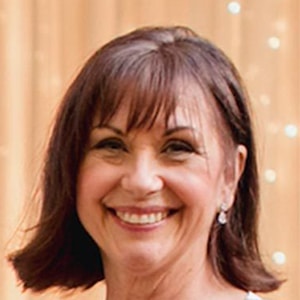
Kathleen Ryan-Jackson, Implementation Specialist with the National Implementation Research Network (NIRN) at the Frank Porter Graham Child Development Institute, University of North Carolina at Chapel Hill
Kathleen Ryan Jackson, DEd, joined Frank Porter Graham Child Development Institute and the NIRN team in September of 2014. She was drawn to the field of implementation science following her tenure in the field of Pre K-12 education as a school administrator, student teacher supervisor, and special educator. Her work has focused on the interaction between student’s academic and behavioral success and the delivery of relevant, culturally responsive curriculum. Kathleen was the Outreach Coordinator for the Northwest Positive Behaviour Interventions and Supports (PBIS) Network and served as a coordinator for Oregon’s Effective Behavioral and Instructional Support System (EBISS) Initiative where she provided professional development and technical assistance to regional and district leadership teams through the use of the Active Implementation Frameworks. Kathleen is passionate regarding the importance of developing a collective commitment to success through the development of leaders at all levels of a system. Throughout her career, she has strived to ensure equitable systems of support for all students, parents, and staff. Kathleen received her Doctor of Education from the University of Oregon where she concentrated on applied research in real world settings. She has an MS, Special Education, University of Oregon and BS, Psychology, University of Oregon.

Mary Salveron – Consultant, Emerging Minds, National Workforce Centre for Child Mental Health, Australia
Mary Salveron, PhD, has been a Research Fellow at the University of South Australia with over 10 years’ experience in the field of child protection, specialising in research methodologies with vulnerable children and families, evaluation of child protection systems and implementation. Her research and practice experience spans from reviewing the literature on the diffusion of innovations, engaging parents and families navigating the child protection process/system, parenting groups for parents whose children have been placed in care, working with refugee families, Aboriginal health and family support and facilitators and barriers to reunification/restoration. As part of her post-doctoral role, Mary undertook an evaluation of the implementation, delivery and uptake of a child protection practice approach and its impact on children, parents and practitioners. She has been involved in evaluations of parenting initiatives and Intensive Family Support Service implementation in South Australia. Currently, she is a Consultant with Emerging Minds, The National Workforce Centre for Child Mental Health funded by the Australian Government dedicated to advancing the mental health and emotional wellbeing of infants, children, adolescents and their families. Emerging Minds develops mental health policy, services, interventions, training, programs and resources in response to the needs of professionals, children and their families and provides implementation support to embed evidence-based practice into the Australian context.

Dorah Taranta – Project Manager, Pathfinder International, Uganda
Dorah Taranta is a Project Manager with Pathfinder International. She has vast experience of programme and project management and capacity building applied to the implementation of community initiatives in public health, economic empowerment, family planning, health and environmental conservation. She has led advocacy efforts at community, district and national levels and has contributed to the development of practical tools and strategies to support the scale up of integrated initiatives. Key interests include economic empowerment at household and community levels for sustainable and resilient communities.

Melissa Van Dyke – International Expert Advisor on Implementation, CELCIS – the Centre for Excellence for Children’s Care and Protection.
Melissa Van Dyke, PhD, joined the CELCIS team in 2015, and has a national role focused on building capacity within CELCIS and the children’s services sector to adopt an implementation-informed approach to improvement. Melissa is currently leading a number of initiatives designed to improve health, early years, education, and social work practices with children and families’ services.
Melissa was previously the Co-Director of the National Implementation Research Network (NIRN), Frank Porter Graham Child Development Institute, University of North Carolina. Melissa has also worked with community and state initiatives to improve mental health and child welfare service systems. This has included working with state and federal initiatives related to scaling up evidence-based practices in education, evidence-based child abuse prevention programs and early childhood home visitation, leadership development in child welfare, and broad reform efforts in early childhood systems and criminal justice systems.
Prior to her work with NIRN, Melissa worked in state government in the United States with families and youth in child welfare, children’s mental health, and the juvenile justice systems. Along with her years in direct service, Melissa served as Deputy Superintendent of a large youth justice facility and was actively involved in various organisational and statewide programme implementation and system improvement initiatives. Melissa obtained her Bachelor of Arts in Psychology from the University of Oregon, a Master of Social Work from the University of Michigan, with a focus on Interpersonal Practice and Policy, and her Ph.D. is in Applied Anthropology with a focus on organisations and systems.

Abe Wandersman – Distinguished Emeritus Professor in the Department of Psychology at the University of South Carolina and Executive Director of the Wandersman Center, USA.
Abe Wandersman, PhD, has decades of experience related to improving programs and communities. His work, which focuses on how to bridge the gap between research and practice, has received international acclaim. Though he recently retired from the University of South Carolina where he was a Professor of Psychology and was interim Co-Director of the Institute for Families in Society at the University of South Carolina, Abe is busier than ever. He specializes in the areas of Community Psychology, Environmental and Ecological Psychology, Citizen Participation, Community Coalitions, Program Evaluation. Among his various projects, he was the Principal Investigator on the evaluation of SCALE (Spreading Community Accelerators through Learning and Evaluation), a national community coalition capacity-building initiative led by the Institute of Healthcare Improvement’s 100 Million Healthier Lives. In recognition of this work, his team recently received the 2017 Outstanding Evaluation Award from the American Evaluation Association. He describes the award as a “win-win” for those involved in the work – not only the evaluation team, but also for 100 Million Healthier Lives, the participating communities, the field of evaluation, the community health improvement as a whole, and for funders. Abe earned his Ph.D. from Cornell University.
